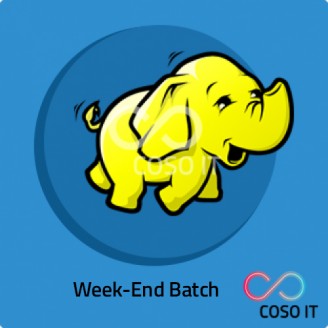Get Ready for developing Big data Applications on Hadoop and for any Hadoop Developer Exams and Jobs. Training and Practice on Real-Time Hadoop Clusters!
Training will be conducted with the help of LMS (Learning Management System), GOTOWebinar Application and all video will be accessed by the participants after the Training through LMS. A Separate access to our Labs for Projects and Assignments are to be given.
Certification Program for Expertise in Developing Big Data Solution on Hadoop.
Why Big Data Technologies Trainings on Real-Time Clusters is important?
- Real world experience means that one gets to work on real machinery in a real production environment. Quite often the experience of working in a real environment is far different from that of a simulated one. Obviously, the real environment is valued more by the Big Data world as opposed to the simulated one. We make that possible as we provide Training basically on a cluster of computers (networked computers) which comes pre-installed with the necessary technology stack, including Apache Hadoop, Apache Spark,and other related technologies.
- As compared to a simulated environment such as a Virtual Machine of Hadoop (basically a virtual machine that needs to be downloaded and run on a single computer), a cluster based learning provides a far more real experience. A virtual machine is run only on one machine while most of the Big Data technology components run on multiple computers.
Big Data and Hadoop Developer Weekend Batch
- Product Code: T11009
- Availability: In Stock
-
$395.00
- Ex Tax: $395.00

